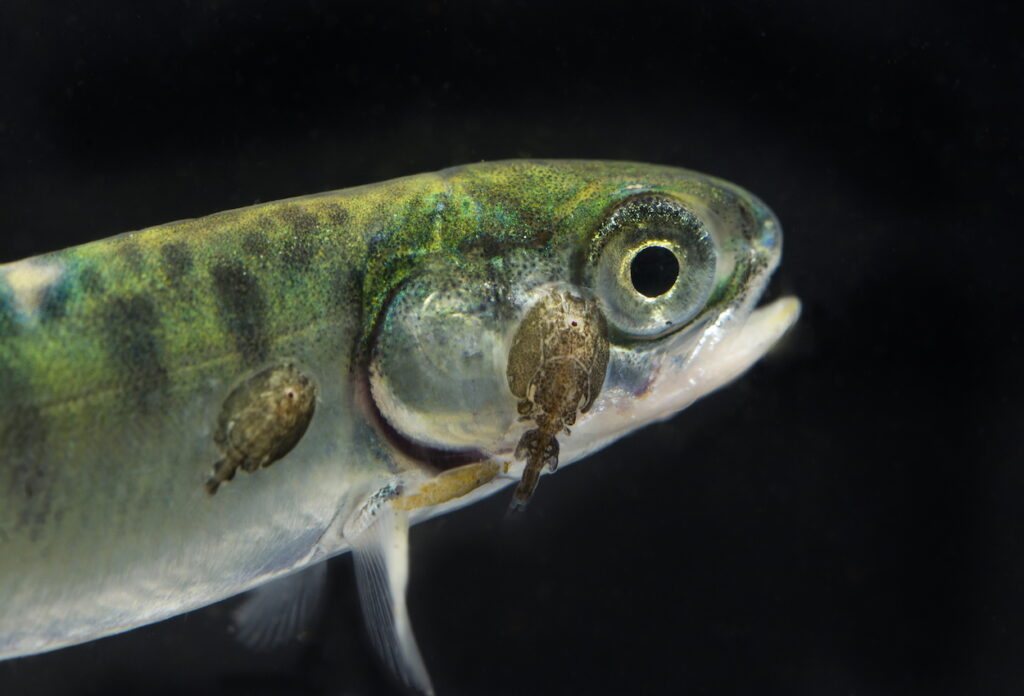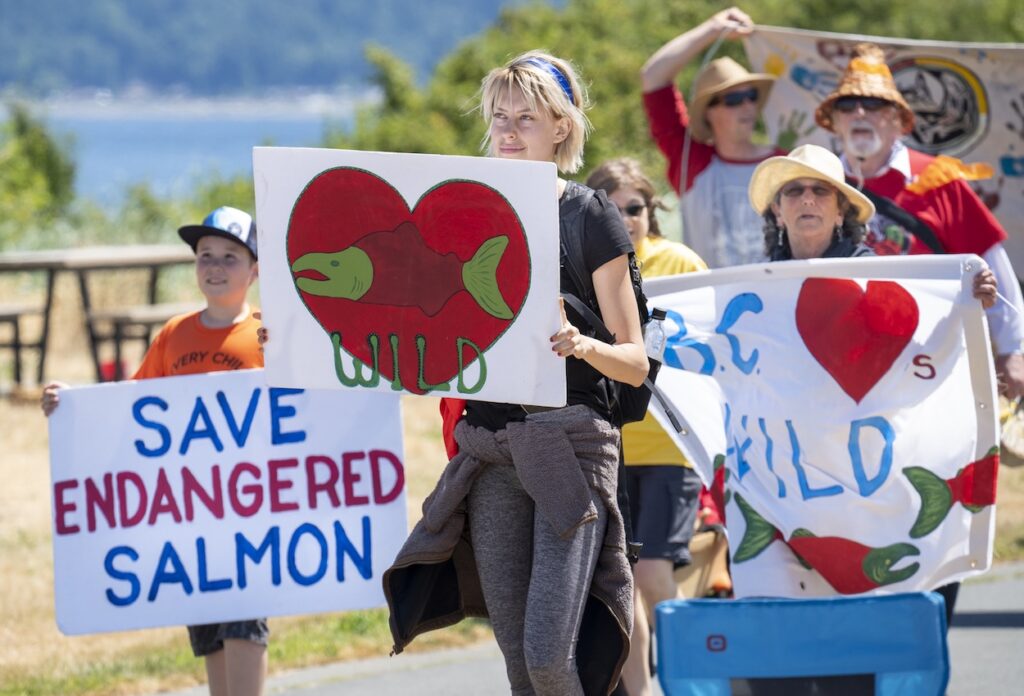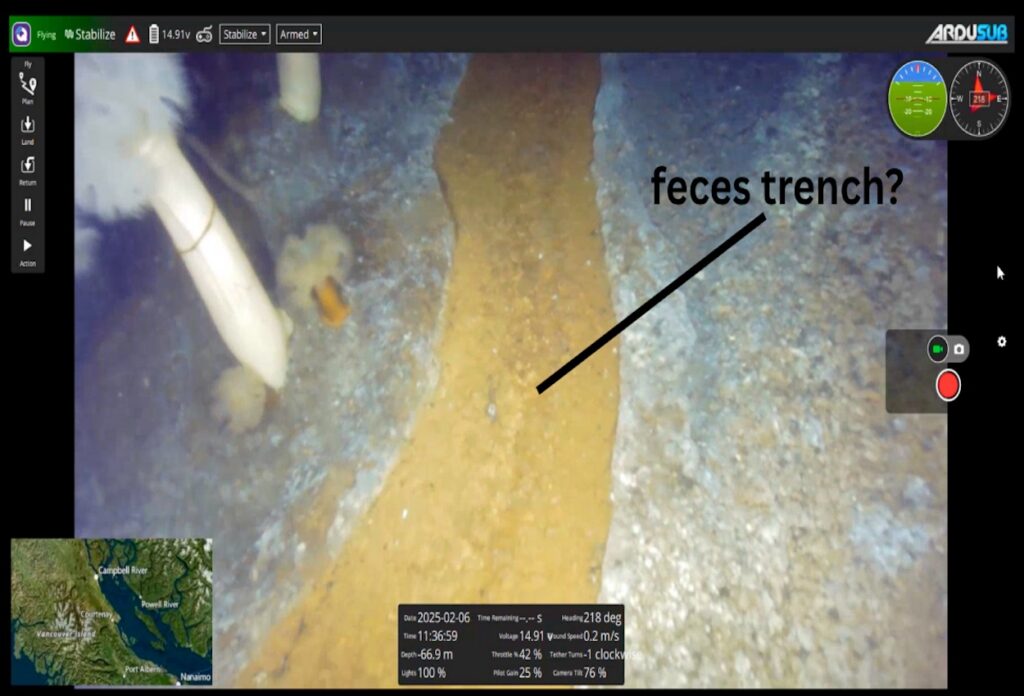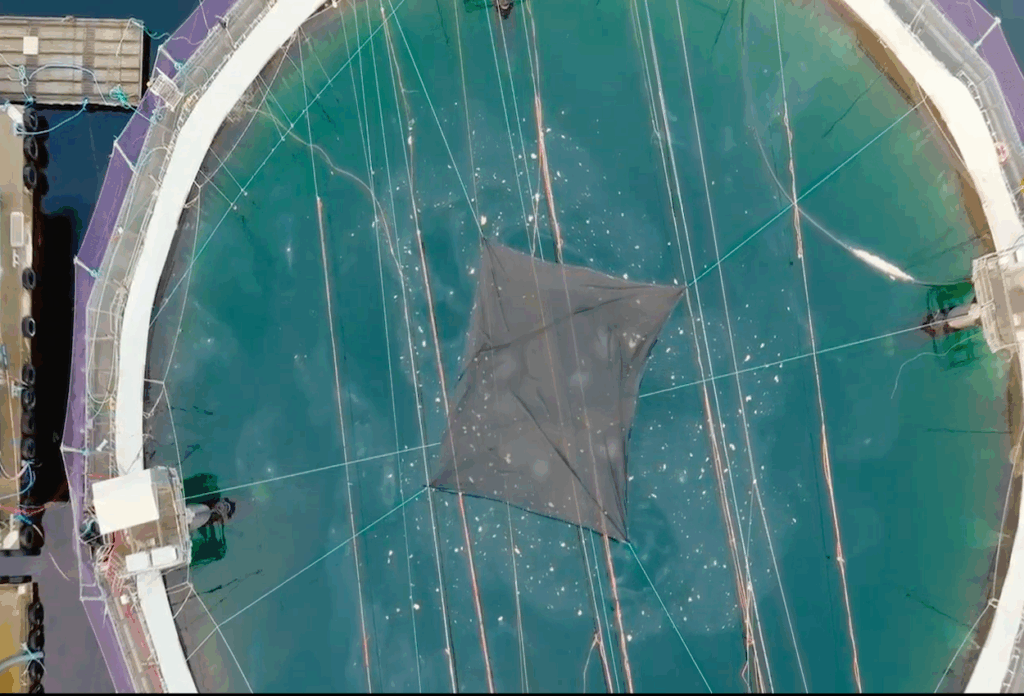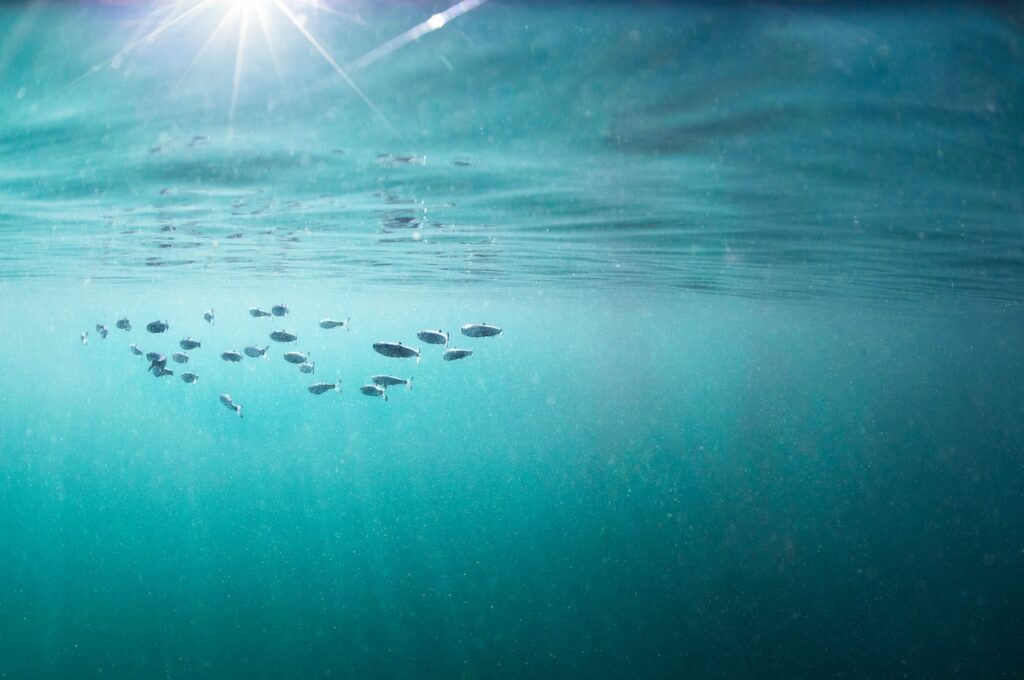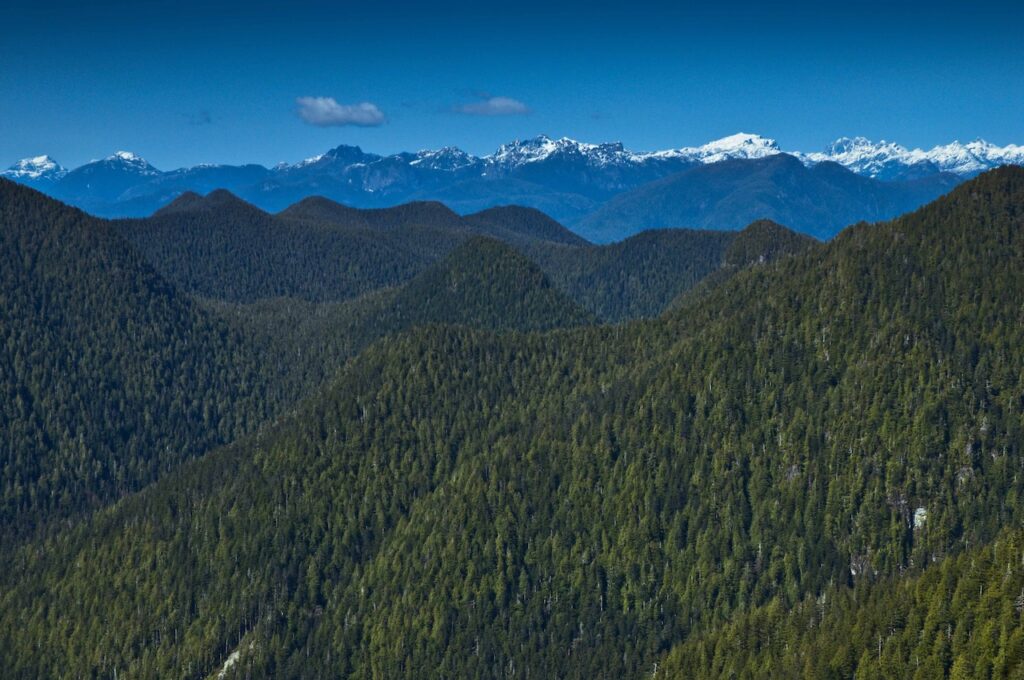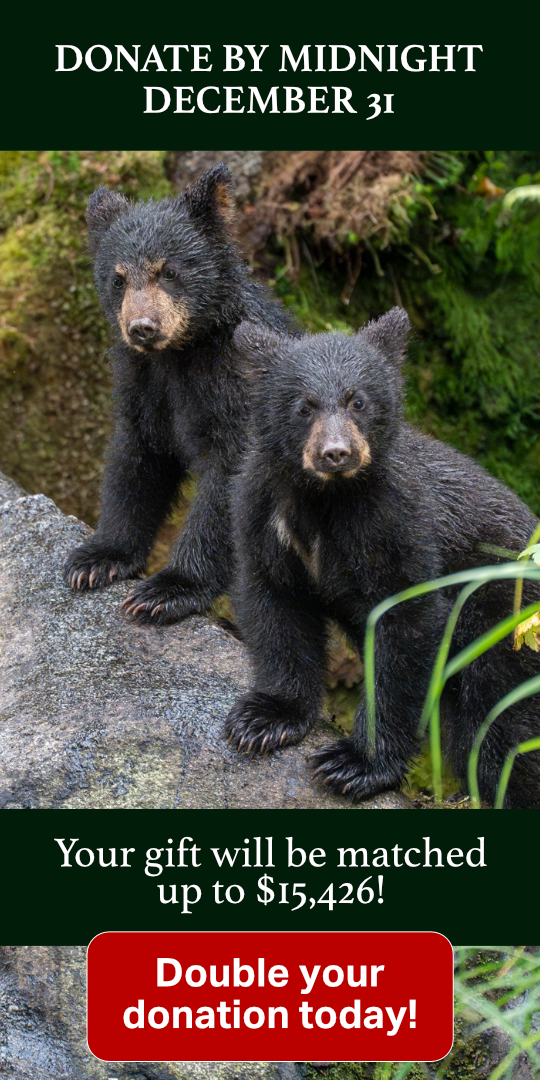There’s always a bit of nervous tension during CSI (Clayoquot Salmon Investigation) missions as we approach a fish farm. Our goal is to expose the dirty secrets of salmon farming, and to make the invisible visible. There is a sense of dread—what are we going to see this time?
On November 25th last year, as we approached Cermaq’s experimental semi-closed containment system (SCCS), the stench of rotting fish was our first clue that something was going wrong. Then we saw it—a sheen of fish oil with bits of rotting tissue, both inside and outside of the pen.
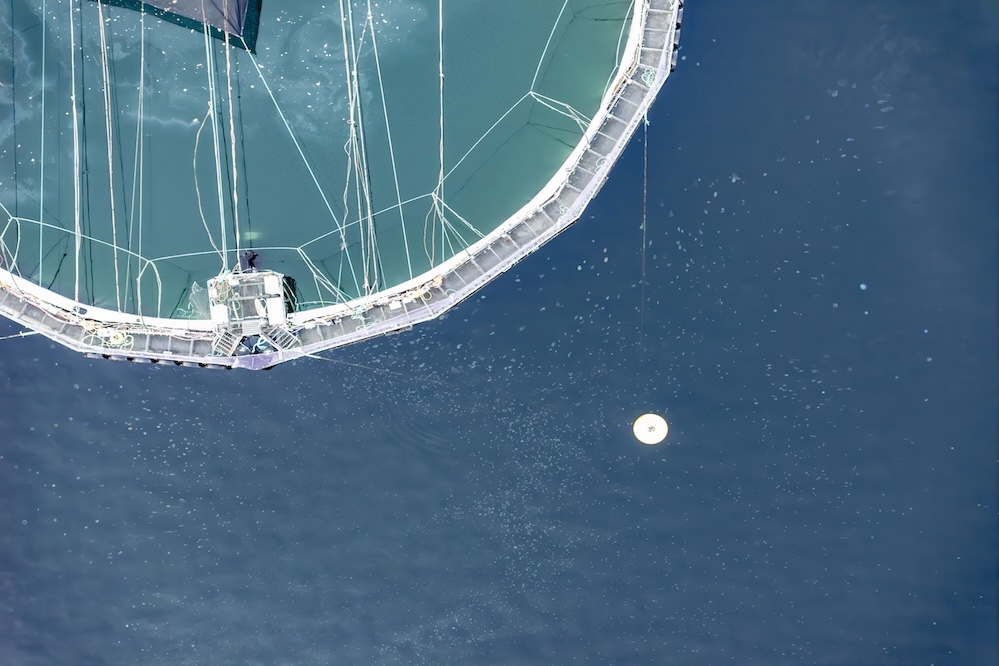
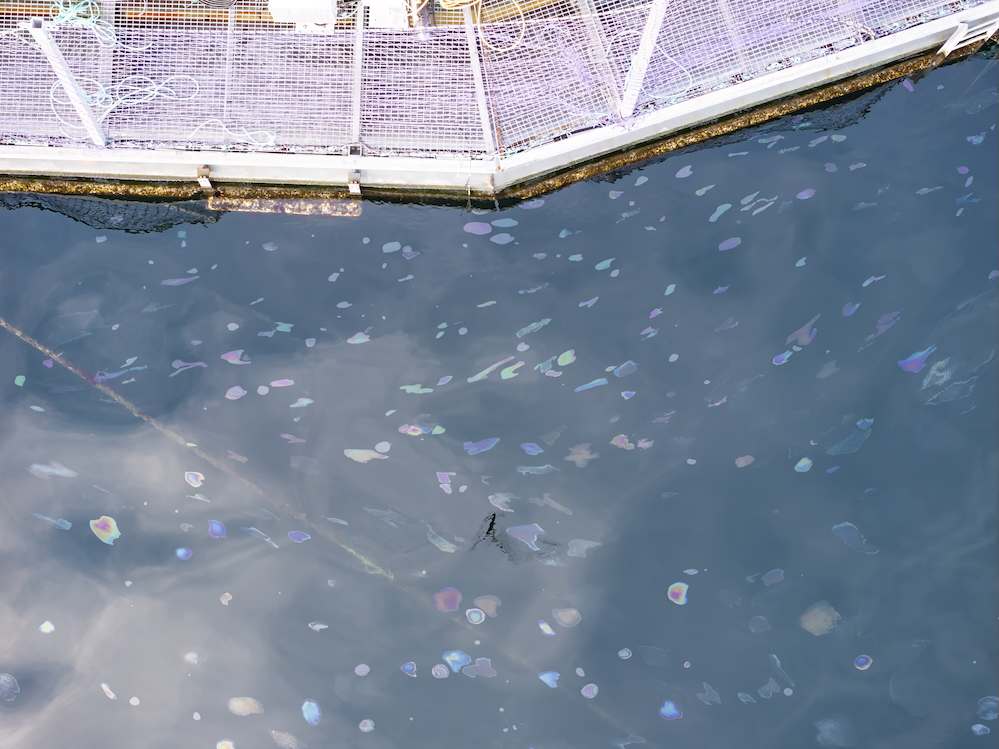
SCCS is a viral super-spreader
The equivalent volume of 7 Olympic-sized swimming pools is pumped through the system every hour. There is no collection of the solid waste, nor of the liquid waste. As a result, this system is a viral super-spreader like every other fish farm in BC waters…
CSI has been back to the SCCS for 5 more site visits—most recently on 29 January. The pollution is on-going, with a sheen of oil across the bay, and a line of sushi-coloured sludge around the system. Gulls were observed feeding on the pink sludge, then rinsing off in a nearby creek before returning to feed.
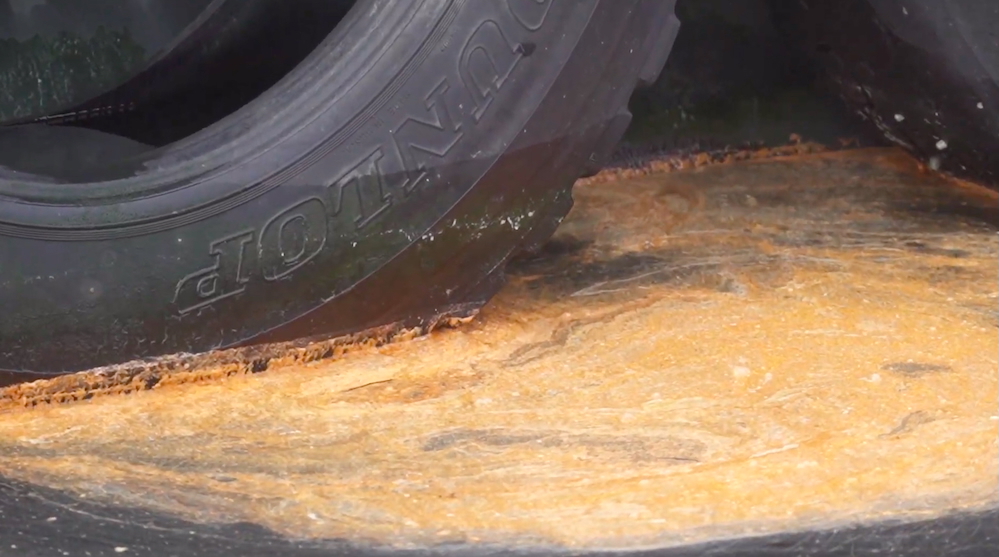
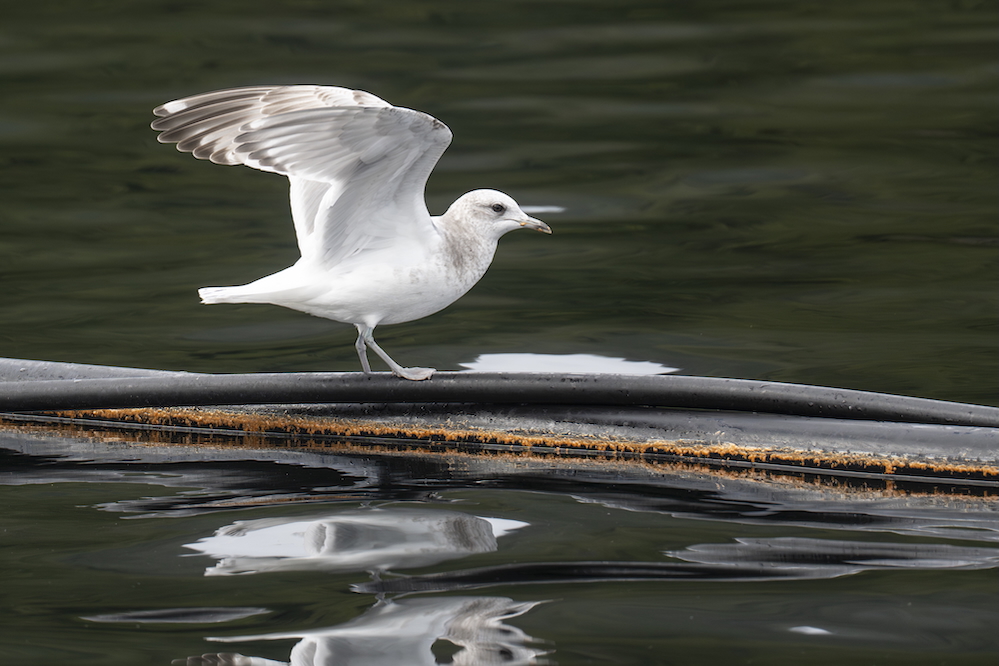
It is sad to see wildlife being impacted by salmon farming operations, especially within a UNESCO Biosphere Region like Clayoquot Sound.

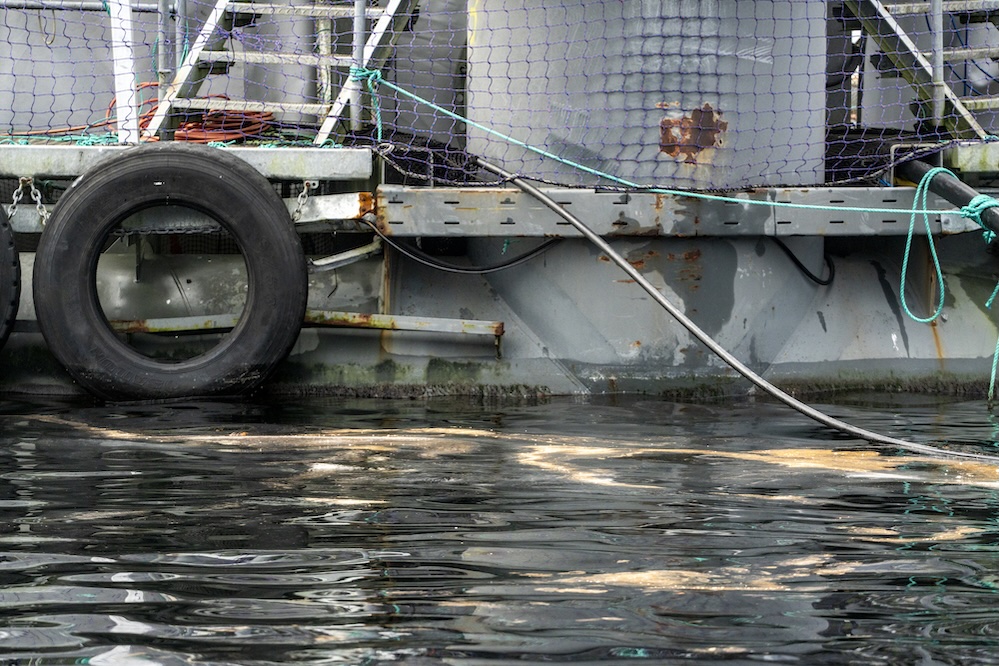
The Department of Fisheries’ 2 responses to this incident do not line up with each other, and neither really explains what happened.
SCCS will not protect wild salmon
Cermaq’s SCCS is one option the government is considering as an alternative to open-net pen salmon farms, which will be banned in BC as of July 1st, 2029. The problem is, they’re really not that different than open-net pens, and will do nothing to protect wild salmon.
There is no future for the salmon farming industry in BC waters. Over 120 First Nations, and 75% of British Columbians want fish farms removed from the ocean. Washington State recently banned open-net pen salmon farming, leaving BC as the only jurisdiction on the west coast of North America allowing salmon farming companies to pollute the ocean.
With many wild salmon populations at historic lows, it is time for bold action. Make sure your views are known—add your voice here.
Dan Lewis is Executive Director of Clayoquot Action.
* Read the BIV article Critics raise concerns over experimental Vancouver Island fish farm HERE
* Dan Lewis talks about the open-net pen salmon farming ban in BC on ABC (Australian Radio) – Listen HERE
* Read about what happened after Clayoquot Action exposed the incident: Cermaq’s doomed experiment part II – HERE
* Read more about What Factory Fish Farms Don’t Want You to See Underwater HERE
